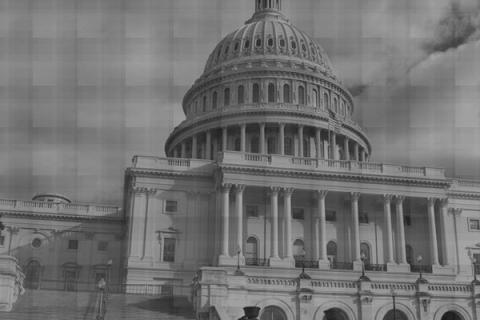A recent Pentagon announcement sending 400 US troops and two batteries of Patriot missiles to the Turkey-Syria border, which Secretary of Defense Leon Panetta says serves defensive purposes, caps an eventful week in Syria.
While the United Kingdom and France had already recognized the National Coalition for Syrian Revolutionary and Opposition Forces as the "legitimate representative" of the Syrian people, President Barack Obama indicated in Morocco on Tuesday that the United States was going to begin formally supporting the umbrella group:
"We've made a decision that the Syrian Opposition Coalition is now inclusive enough, is reflective and representative enough of the Syrian population that we consider them the legitimate representative of the Syrian people in opposition to the Assad regime. . . ."Obviously, with that recognition comes responsibilities . . . To make sure that they organize themselves effectively, that they are representative of all parties, that they commit themselves to a political transition that respects women's rights and minority rights."
The National Coalition replaces the Syrian National Council as the government-in-exile while the regime of Bashar al-Assad continues the fight against the rebels.
Nearly concurrent with US support for the National Coalition was the State Department's labeling of Jabhat al-Nusra, a group fighting within the broad Free Syrian Army, as a foreign terrorist organization. The group received the designation because the State Department believes al-Nusra, or the Nusra Front, is an off-shoot of al-Qaeda in Iraq. Earlier this week, al-Nusra claimed credit for car and suicide bombings at the Syrian Interior Ministry, tactics synonymous with al-Qaeda.
The decision to list al-Nusra as a foreign terrorist organization irked Mouaz al-Khatib, the leader of the National Coalition, who said, "We might disagree with some parties and their ideas and their political and ideological vision. But we affirm that all the guns of the rebels are aimed at overthrowing the tyrannical criminal regime."
After the State Department's decision, thousands protested in the streets and no fewer than 29 Syrian opposition groups and as many as 83 rebel battalions signed petitions pledging support for al-Nusra.
The reaction to the labeling highlights a situation in Syria that is increasingly fragile for both its neighbors and the West. As violence from Syria has spilled into Lebanon, Jordan, and Turkey, the countries in the region have an interest in facilitating an end to the conflict.
From the Washington standpoint, the decision to recognize the National Coalition, but also formally stigmatize al-Nusra, highlights a delicate line. The actions of the US and the West indicate they want to see the rebels prevail over Assad, but one of the groups that is increasingly important in achieving that goal and has significant support among the Syrian people, qualifies as a terrorist group.
According to President Obama, the National Coalition became a "legitimate representative" of the Syrian people because it embodies inclusiveness, but Khatib's own words suggest that the National Coalition's success is heavily dependent on al-Nusra, a group whose mission is the establishment of a caliphate ruled by sharia, which some might consider the antithesis of inclusiveness. What connects them is the common cause of deposing the Assad regime.
To this point, the Obama administration has stated that it will not directly intervene in Syria in the way it did in the NATO and Arab League operation into Libya in 2011. Prospective secretary of defense, Chuck Hagel, echoed the administration's sentiment in an interview earlier this year, "If there is some military intervention, it has to come from the region."
The Pentagon's announcement that it will begin supplying US troops and missiles to Turkey-Syria border suggests that the US is about to become more involved in the ongoing Syrian conflict which, as yet, has not included directly arming the rebels.
However, the situation has become so complicated that even if the objective of deposing Assad succeeds, variables such as the standing of groups like al-Nusra increase the likelihood that the violence will not end and that the US will become more involved in the country's future.

